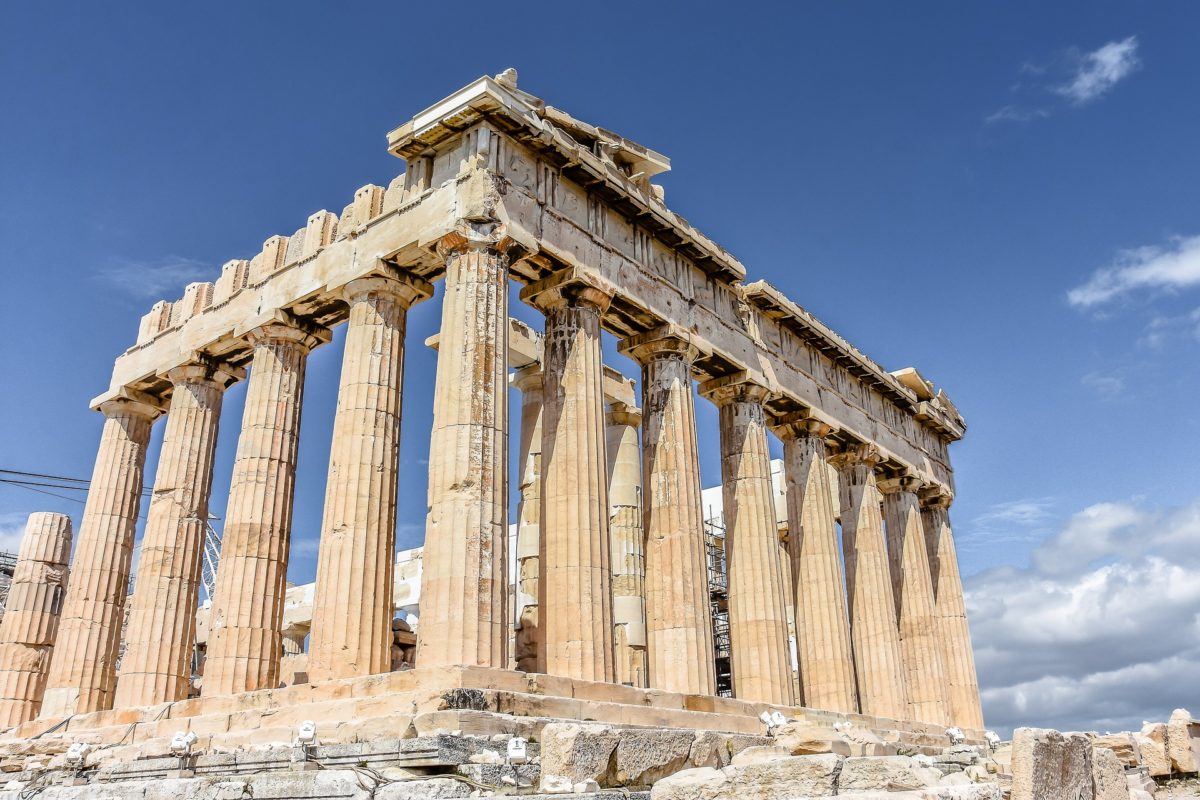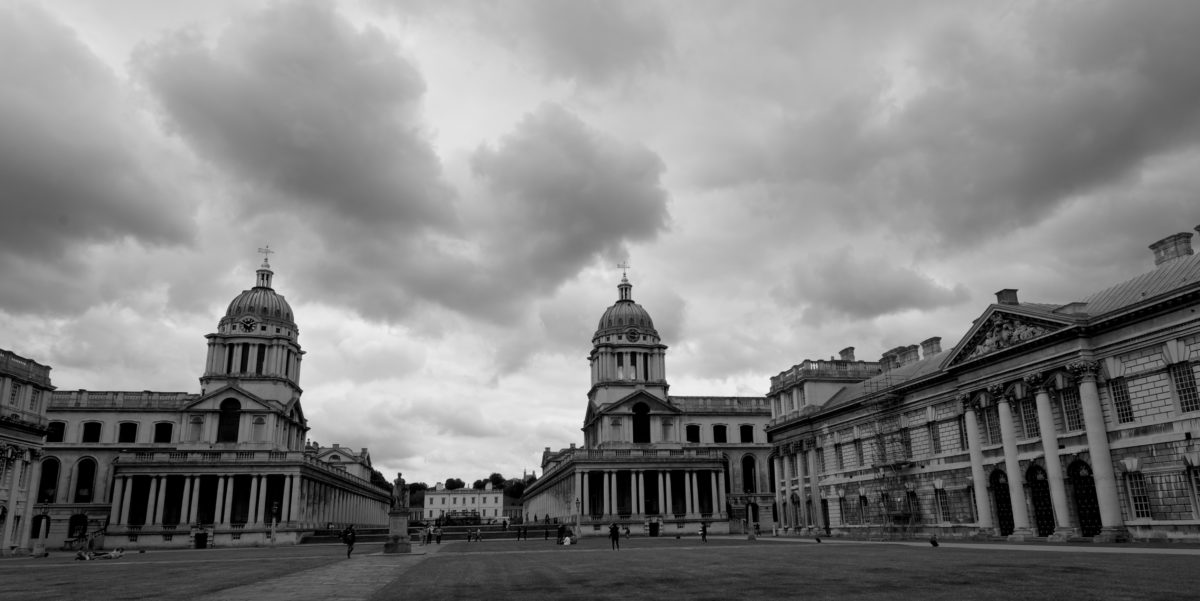At The Undercurrent, we recently launched the second iteration of #CapitalistAndProud, our national initiative rallying college students to write to their campus papers explaining why they support capitalism. We’ve committed to posting well-written submissions on the TU blog.
* * *
The following is a letter to the editor from Justin Kendall, a second year student of sculpture at the Florence Academy of Art.
It is a sin to write this.
Ayn Rand penned these words in 1937, depicting a world in which it was considered evil to think, to dissent, to be an individual. In today’s world, to say the name Ayn Rand, to hold the view that capitalism is the only economic system consistent with liberty, peace, and prosperity, is an aberration of the highest order. To do so as an artist is practically unthinkable.
Opponents of capitalism invariably dismiss it as an exploitative enterprise and claim its practitioners to be avaricious villains. This is eminently false. And in order to understand why this is eminently false, one must examine the ethical premise of capitalism.
Capitalism is a political and economic system in which a country’s trade and its industries rest in the hands of private owners rather than the state. This system inherently rests on the ethics of rational self-interest. The popular conception of self-interest, or selfishness, is one of a corrupt, thieving, heartless specter, whose lot in life is to exploit and injure anyone to achieve its ends. This has been and continues to be a desolating intellectual conflation, contributing to both the stagnation and regression of societies all over the world.
The true meaning is precisely the opposite, because self-interest can only be achieved through mutually beneficial and voluntary relationships. Opponents of capitalism shift the goalposts in the debate by omitting “rational” from the context of self-interest.
Everything of value, indeed the whole of human survival and flourishing, is a product of the mind, of our capacity to think and to reason. To think, we must be free. We must be left alone. The primary focus of altruist and collectivist ideologies is to use compulsion by the state, or the mob, to interfere in our lives. The enemy of the mind is force; it is coercion. Indeed, it is observable, here in reality, why a human must be free of force. The use of physical force and compulsion negates your ability to pursue and create values.
Can you conceive of Thomas Edison inventing the lightbulb—bogged down by government regulation? Or Andrew Carnegie rapidly advancing through company ranks by arriving early to his twelve-hour shift to teach himself to decipher Morse code without transcribing it first (a feat attained by only one other individual in the country at the time)—subjected to union work hours? You can’t think under a threat of force; you cannot act in your own self-interest confined to leg irons. Just as one would not add a small amount of poison in with their cream and coffee, there can be no compromise between statism and liberty.
Correctly understood, capitalism seeks to remove the initiation of force from all interpersonal relationships, preserving and upholding the individual’s natural rights to life, liberty, property, and the pursuit of their own happiness. If properly practiced, capitalism accomplishes this by leaving room in the free market for any given consumer to trade with any producer the consumer chooses.
I am deeply disturbed by what I see on college campuses today. I am deeply disturbed by the principles routinely espoused by Western thought leaders and so-called intellectuals. The Income Inequality Alarmists, the Social Justice Warriors, the Fight For Fifteen, the You-Didn’t-Build-That speech, the popularity of Thomas Piketty and Paul Krugman, the Sanders “revolution”—they all seek to levy physical force on human relationships in various ways. From proclamations limiting or altogether suppressing speech and assembly, to regulations governing the action of private business owners, this alleged common-good-seeking, centrally-planned non-wisdom of administration and authorities hinder and inhibit creation, production, and growth. These positions are anti-intellectual, they are anti-reason, they are anti-freedom, and they are ultimately anti-life. They seek to rob the individual of the fruits of his labor and give these fruits to those who did not labor.
By contrast, the economic and political freedom that individuals would enjoy under laissez-faire capitalism turns success into a matter of choice, not chance. It rests upon merit rather than privilege, with the marketplace rewarding ability and ambition instead of impotence and mediocrity.
In The Fountainhead, Ms. Rand reminds us that, “throughout the centuries there were men who took first steps down new roads armed with nothing but their own vision. Their goals differed, but they all had this in common: that the step was first, the road new, the vision un-borrowed, and the response they received—hatred. The great creators—the thinkers, the artists, the scientists, the inventors—stood alone against the men of their time…They fought, they suffered, and they paid. But they won.”
Self-interest demands hard work. For one to know and understand what is in their self-interest requires both careful examination and constant effort. The pavers of those once-new roads we walk along today did not build and create by way of whim or lassitude, but by the relentless and single-minded application of their minds. Unswayed by personal failure, public opinion, critics and colleagues, the government truncheon, or even the Pope, the true greats of the past and present overcame many challenges. In pursuing their highest values, their existence meant struggle. Titans such as Carnegie, Rockefeller, Gates, Jobs—or Michelangelo—responded to those challenges with vigor.
I believe an important role of the artist and the artistic community at-large is to embrace a different set of values, a different philosophy, because philosophy matters. And if art is subject to the creator’s judgement and view of reality, then artists—painters, writers, filmmakers, sculptors—are uniquely situated among the public to make better ideas, the ideas of freedom, of liberty, of capitalism, properly understood and more palatable to the American people and the rest of the world.
If you continue thinking altruism is an effective and appropriate moral code, then statism will be the ultimate political extension of such action. If you realize that you have a right to your own life, that the pursuit of your happiness and flourishing is a moral good, then it may be time to embrace a different system.
That freedom to think, to create, to speak, and to pursue the values that I deem vital to my life is why I am capitalist and proud.





